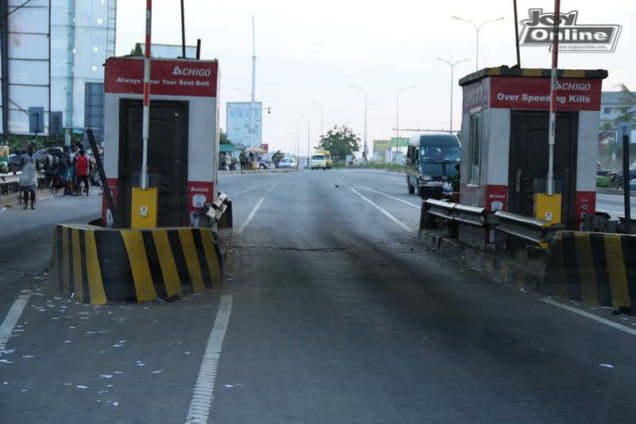As air pollution continues to worsen in Ghana, those most affected are often the vulnerable in society.
One such group are toll workers - tasked with collecting tolls on roads across the country. Long hours spent inhaling toxic emissions from vehicles has left many with serious health problems. Most are people living with disabilities who find it hard to get a job.

The government shut down toll booths in 2021 leaving 700 workers without jobs. But now the government is considering reopening them to boost its revenues.
As Prince Owusu Asiedu reports, toll workers want measures put in place if they’re to come back to the booths.
40-year-old Kingsford Dawun is a physically challenged person. His troubles started at the age of five after receiving polio injections and since then he has been moving around with a walking aid.
After years of struggling to get a job to fend for himself and his family, he was happy when he got recruited as a road toll collector in 2020 as part of a government policy to employ people living with disabilities.
But the poorly-ventilated toll booth he sat in at Amasaman in the Greater Accra Area was always filled with exhaust fumes from vehicles when drivers stop to pay their tolls.
"Most of the time, I will cough. I will feel pains around my chest and lungs area. When the vehicles emit fumes into the atmosphere, I become sick".

After over one years on the job, Kingsford was laid off when the government shut all toll booths across the country. It was then that Kingsford decided to seek proper medical attention. He was not entirely surprised when the doctors at the Nsawam Government Hospital told him he had a serious condition called Chronic Obstructive Pulmonary disease.
"I went to the hospital after I spent some weeks at home. I was taking medicine to recover".
Emmanuel Abona is another former toll collector in Accra living with a disability. He was born physically-challenged; since then he’s been using a walking stick. Emmanuel says he attended a health screening at Amasaman where they saw signs of smoke damage to his chest and lungs. After doctors conducted further tests, he was diagnosed with a lung disease.
"The doctor told me I have lung disease. My lungs are dark. The doctor asked me if I was a smoker, I told him I work at the toll booth".
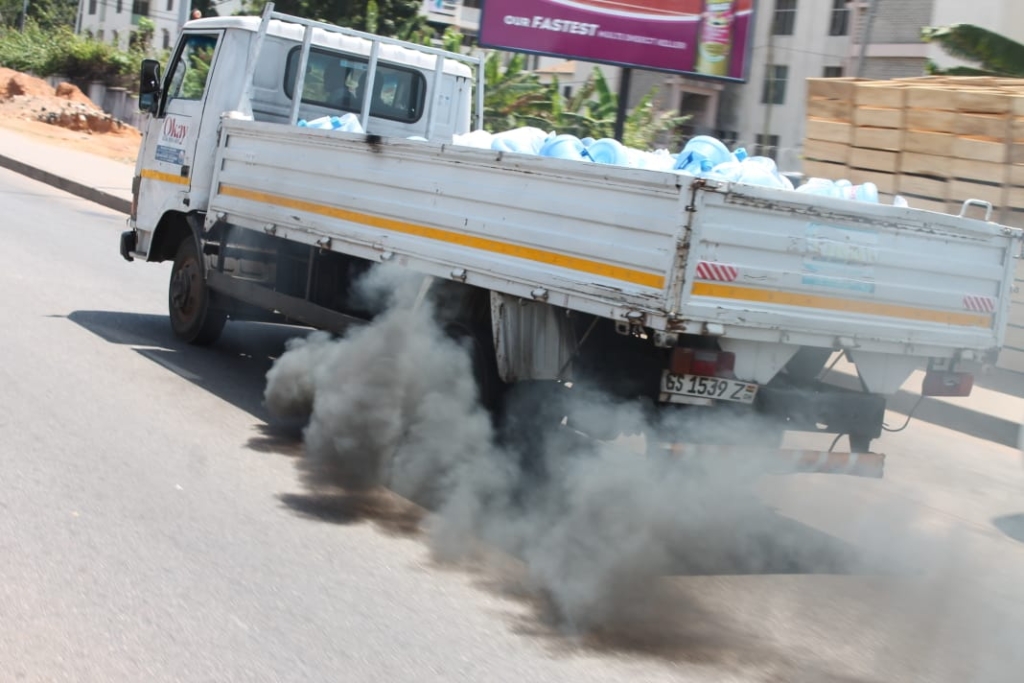
According to Ghana Toll Workers Union secretary, Duncan Edward, Emmanuel and Kingsford’s predicaments are typical of former toll booth collectors nationwide.
"I’m also affected by the fumes from cars at the toll booths but I have not gone to check my health status".
Currently, Edward is leading a campaign to ensure toll booth workers are supported when it comes to the health challenges they are facing.
"Those affected by the smoke should be compensated," he stressed.
Meanwhile, almost 40 percent of Ghana’s air pollution is caused by transport emissions, mostly from vehicles. These emissions contain extremely small particles that can travel through the blood stream to cause damage to vital organs such as the heart and lungs.
For toll workers - sitting in poorly ventilated rooms and constantly inhaling vehicular fumes - increases their risk of lung-related disease.
Chief Executive Officer of the Korle Bu Teaching, Dr. Oware Ampomah says fumes from vehicles contain dangerous substances and gas which can kill.
He says toll workers in Ghana are at greater risk of diseases such as asthma and lung cancer.
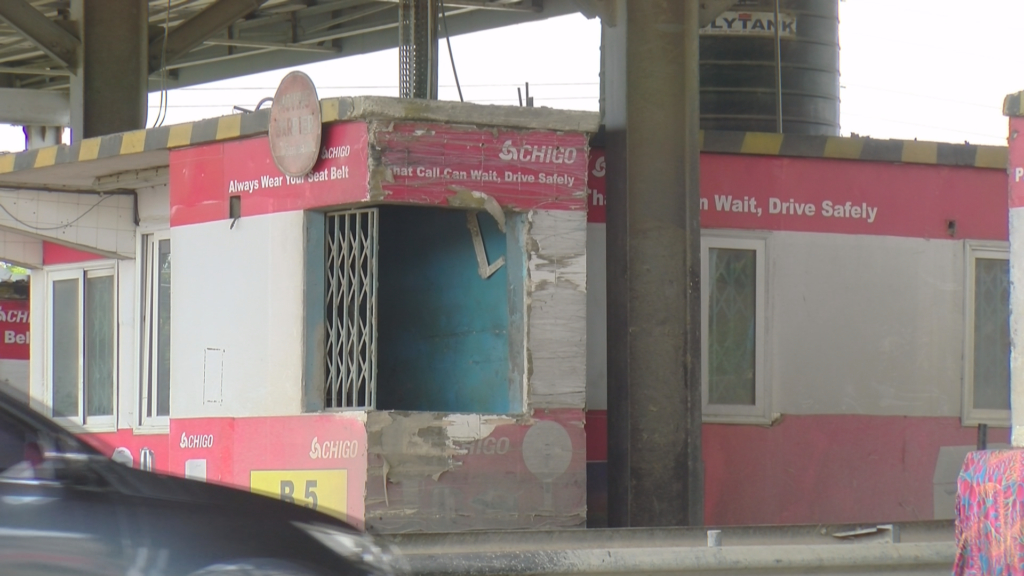
"The fumes from vehicles can kill you if you inhale it continuously, the particles PM 2.5 emissions from vehicles can give you lung and heart disease".
Pediatric Pulmonologist and a Senior Lecturer at the Kwame Nkrumah University of Science and Technology, Dr. Sandra Kwarteng Owusu says if government indeed plans to re-open the toll booths, workers will need protection.
"I think if the ignition of vehicles are constantly on and there are people at the toll booths day by day, week by week, month by month without any protective clothing then potentially it could be equally harmful. The effect will be the same as if the person was directly smoking".
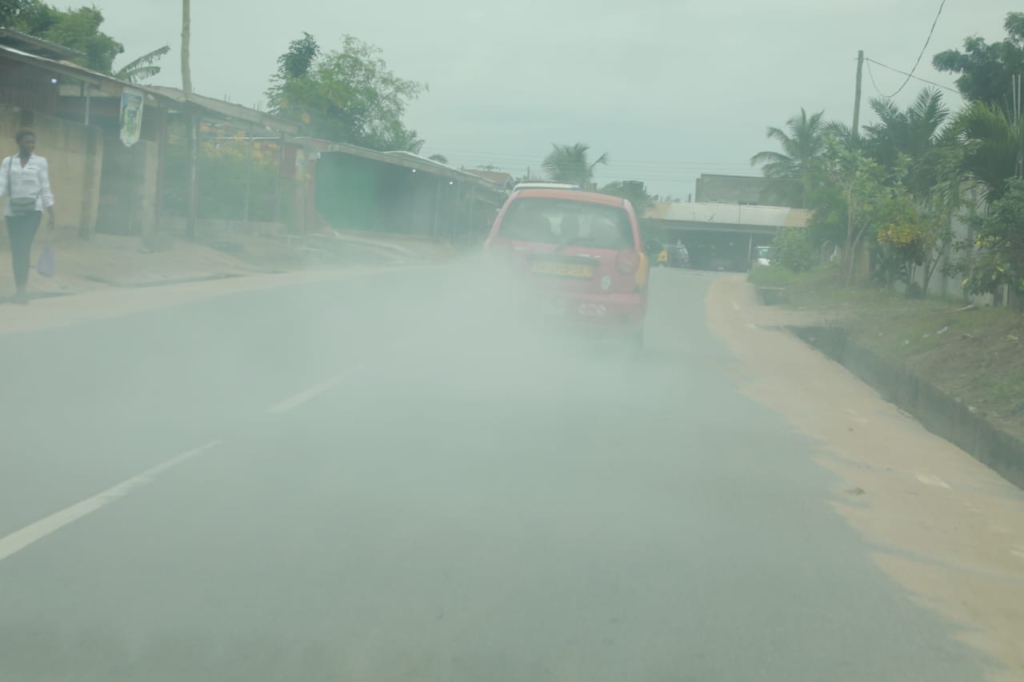
About 30 percent of the toll workers were people living with disabilities. They were hired as part of an initiative by the Ministry of Roads and Highways to provide jobs for people who found it difficult to find jobs elsewhere. But now, they find themselves with a second set of health challenges on top of their disabilities.
University of Ghana public health expert, Dr. Reginald Quansah, says people in wheelchairs are particularly vulnerable and should not be working in poorly-ventilated booths.
"Physically-challenged people are vulnerable to smoke. It is because the height of their wheelchair places their airways on the same level as the fumes coming out of vehicles. The smoke can kill them easily," he said.
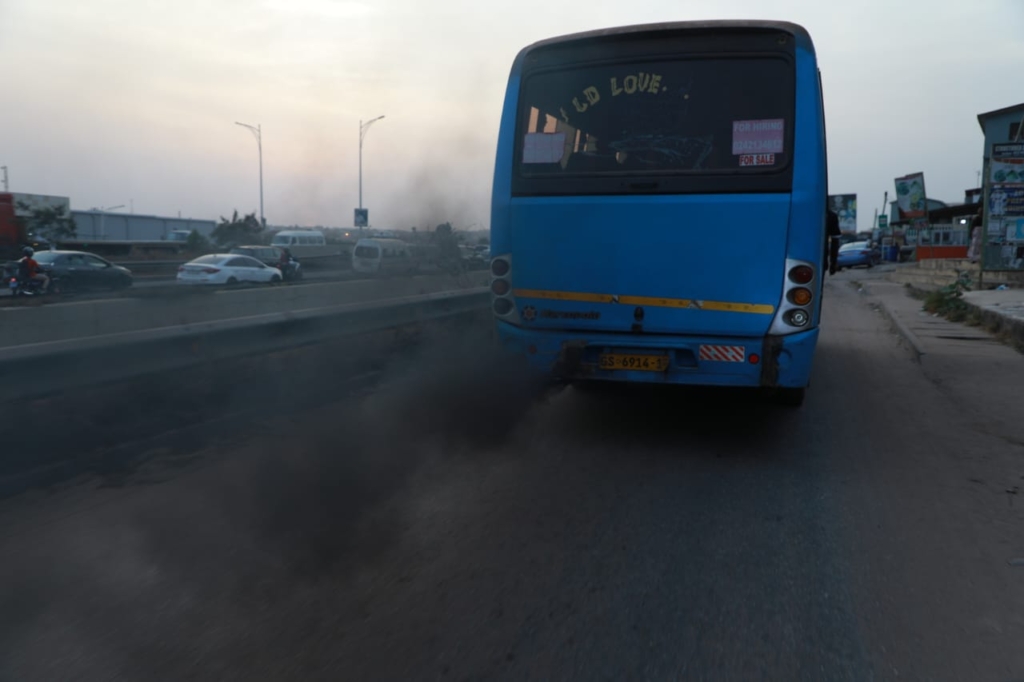
Some experts and opinion leaders like the MP for Mpraeso, are urging the government to adopt technologies used overseas when it comes to toll collection.
Regional Manager of the Ghana Highway Authority, Emmanuel Odai says government is putting measures in place to build new automated booths, leaving a few manual ones.
"We wish to stop toll workers from going back to sit at the toll booths. We are hoping for electronic booths but when we do that people will be unemployed. When we are done constructing new toll booths we will provide them with nose masks".
Already, one solution being floated is the re-introduction of vehicle emissions testing. This would ensure that vehicles that emit toxic fumes above a certain level are not allowed to ply our roads until their engines have been fixed. This would help improve air quality for people across the country as well as toll booth workers.
The former Chief Executive of the Environmental Protection Agency, Henry Kwabena Kokofu agrees with this school of thought.
"We are going to make sure drivers whose car engines are not fit for our roads repair them before returning to the road. Failure to do so will attract punishment," he added.

But as protection for future toll workers are discussed, what happens to people like Kingsford who are already paying a price for their previous work?
What happens to those who now have the double burden of living with a disability and lung-related diseases?
The Toll Workers Union is urging the government to compensate them now and provide healthcare to ease their suffering and save lives.
This report was produced in collaboration with New Narratives with funding from the Clean Air Fund.
Latest Stories
-
CHAN 2024Q: Ghana’s Black Galaxies held by Nigeria in first-leg tie
46 minutes -
Dr Nduom hopeful defunct GN bank will be restored under Mahama administration
1 hour -
Bridget Bonnie celebrates NDC Victory, champions hope for women and youth
1 hour -
Shamima Muslim urges youth to lead Ghana’s renewal at 18Plus4NDC anniversary
2 hours -
Akufo-Addo condemns post-election violence, blames NDC
3 hours -
DAMC, Free Food Company, to distribute 10,000 packs of food to street kids
4 hours -
Kwame Boafo Akuffo: Court ruling on re-collation flawed
4 hours -
Samuel Yaw Adusei: The strategist behind NDC’s electoral security in Ashanti region
4 hours -
I’m confident posterity will judge my performance well – Akufo-Addo
4 hours -
Syria’s minorities seek security as country charts new future
5 hours -
Prof. Nana Aba Appiah Amfo re-appointed as Vice-Chancellor of the University of Ghana
5 hours -
German police probe market attack security and warnings
5 hours -
Grief and anger in Magdeburg after Christmas market attack
5 hours -
Baltasar Coin becomes first Ghanaian meme coin to hit DEX Screener at $100K market cap
6 hours -
EC blames re-collation of disputed results on widespread lawlessness by party supporters
6 hours

